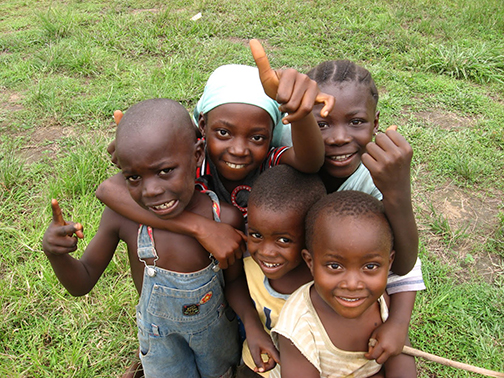Tim Senesi
ENC1102
IMPROVING THE EDUCATION IN SIERRA LEONE
Educating a country is one of the most important ways to boost a country’s economic growth. Economic growth refers to a country boosting its GDP. GDP stands for Gross Domestic Product, and it measures a country’s entire output for a given year. GDP growth is the leading factor for a countries economic growth. When a country lacks good education, it is common that they enter what economists call a poverty trap, which in essence stunts economic growth and development. In the economic world, a poverty trap is one of the worst events for a country to experience because it is so difficult to get out of poverty traps. In Sierra Leone, most of the population is under the age of 15, with estimates putting a number at 41% of the population. On top of that, another 39% of the population is believed to be between the ages of 15 and 35. As you can tell from these numbers, Sierra Leone contains a large number of young people in its population.
Another
interesting feature about the Sierra Leone population is that the country is
surprisingly becoming more urban. While most people do live in rural areas,
projections pin an urbanization rate of about 3%. This essentially means that
each year, approximately 3% of the population is moving away from the rural
areas, and instead moving to urban areas.(cities)This is significant because it
means that Sierra Leone’s city services are going to be under a lot of heavy
scrutiny in the upcoming years. When I say this, I am talking about the
increased pressure of Sierra Leonean cities to have good public infrastructure
to support all of the new people moving to cities.
Even
though education in Sierra Leone is obligatory for every child and even comes
free of charge, schooling is still lacking in many aspects. The norm for
education in Sierra Leone is for the children to receive at least six years of
primary level education, and then three years in junior secondary education.
However, Sierra Leone has a very high shortage of schools and teachers, which
makes these numbers extremely hard, if not impossible to achieve. On top of
this, Sierra Leone lacks the resources needed to make this happen in the first
place. Thus, this seems lack a disaster for improvements in human capital for
this country.
In
fact, it is estimated that around 2/3 of the adult population here is
illiterate. In a recent Civil War that occurred in Sierra Leone, 1,270 primary
schools were destroyed. As a result of this, as of 2001, 67% of all school-aged
children were not able to attend a school. Since then, schools have been
rebuilt, and children are definitely starting to receive more schooling, as of
2016 the Human Development Report estimates that only 48% of children finish
their schooling. To make matters worse, due to cultural beliefs in Sierra
Leone, the rate of completion for girls is way lower than this number. Girls do not receive the same social standing
as they do in Western Countries, so that is why it is even more imperative to
fix this problem.
On
top of the lack of education in the first place, the quality of education for
those who do receive it is awful as well. Many of the teachers are not equipped
with the proper resources they need to be successful, and even more of them do
not even possess proper teaching skills needed to make an impact on the
children. Because of these facts, the level of education received in Sierra
Leone is far behind the level reached by children in the Western part of the
world. As a result of this, the unemployment rate among the Sierra Leonean
youth is extremely low.
People
have reached out to help Sierra Leone in the past. In fact, University College
Dublin piloted an innovative education program that targeted 105 communities in
5 chiefdoms of Sierra Leone. The program implements the safe learning model
(SLM), which is basically an integrated and holistic approach to gender
equality, while also improving education outcomes for all the children. The
overall objective of the project is to increase access to, and completion of
quality primary education in Sierra Leone. By looking at the results from this
program, it was very obvious that this program was in fact effective at reaching
both of its goals.
This
education program signifies the need for the western world to get involved with
aiding countries like Sierra Leone. By providing these education programs,
hopefully we can get Sierra Leone and other countries like them out of these
formidable poverty traps. By doing this, hopefully we can start to eradicate
the strong inequality that exists around the globe.





No comments:
Post a Comment
Note: Only a member of this blog may post a comment.